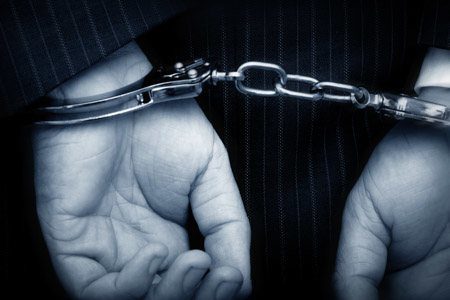Forensic Psychology Degree and Career Guide
You May Also Like
Careers in Criminal Psychology vs. Forensics

Criminal psychology and forensic psychology: Both are psychology subfields that deal with crime, law and the legal system.
But if criminal psychologists work internally, from within the criminal’s point of view, a forensic psychology professional approaches things externally.
Although they are similar, they have differences that relegate their relationship to being more like cousins than siblings.
Differences from a Professional Perspective
Dr. Linda Daniels, a professor at Massachusetts School of Professional Psychology and co-director of the school’s forensic psychology program, says the biggest misconception students have about the field is that they often confuse forensic psychology with the forensic sciences. “Many believe that forensic psychology is identical to television programs where physical evidence from a crime scene, or the bodies of victims, are studied in order to help determine potential perpetrators and gather clues about the cause of death.”
In reality, she says, “Forensic psychologists generally assess, evaluate, diagnose, and study the human mind as it relates to the law.” Among other things, forensic psychologists are “often called upon to evaluate individuals in cases where criminal responsibility, competency to stand trial, and dangerousness become legal issues in a particular case.”
She thinks the best candidates for the job are those who “have a passion for providing assessment, evaluation, and care to those who are forensically-involved,” and that it’s essential to have a “strong desire to share one’s knowledge and expertise in the legal system in order to help the judges and juries make informed decisions about a person’s guilt or innocence.”
Criminal Psychology Degrees
Here’s what criminal psychology professionals do:
- Focus on understanding the psychological motivations that occur behind any given crime
- Determine the criminal’s reason for committing a crime
- Interview criminals to learn about their upbringing and family life
- Evaluate crime scenes, evidence, witnesses and victims, and assess these elements in relation to the suspect or suspects in a given crime
- Create a profile to help law enforcement apprehend a criminal after a crime is committed
- Study criminal thoughts, life relationships and state of mind after committing a crime
- Help jurors understand the criminal mindset in court
Students choosing to attend a college of criminal psychology will study criminal justice and criminology, and they need at least a bachelor’s degree to practice in the field.
Some criminal psychologists choose to work at the National Center for the Analysis of Violent Crime (NCAVC) in Quantico, Virginia*. Other major employers include mental institutions and local law enforcement offices. Criminal psychologists, like their forensic psychology counterparts, are sometimes called upon to offer expert testimony in criminal cases.
Forensic Psychology Degrees
Here’s what forensic psychology professionals do:
- Analyze the aftermath of a crime and the impact upon on its victims
- Apply psychology to the criminal justice system and will frequently deal with the legal aspect of criminal justice, such as law and public policy or competency
- Study and advise on crime prevention systems, rehabilitation systems, and courtroom dynamics
- Offer psychological services to victims of crime
- Evaluate criminals and assess the likelihood of re-offending
- Work with family court to provide psychological services to children and families
- Testify in court on criminal forensic matters
The majority of forensic psychologists work for state or local government legal or justice systems. They also are employed by universities, laboratories, hospitals or medical examiner offices. Many forensic psychologists choose to become independent contractors and work within a cross-section of environments.
A forensic psychology student will prepare for his or her career by earning a bachelor’s degree in psychology. Forensic psychology is a highly competitive field, and a master’s degree or doctorate in psychology or forensic psychology is generally the norm. And as Dr. Daniels says, “My advice to potential forensic psychology students is to learn all you can about the field, narrow your interests down to an area that you feel is best for you, and “go for it” with great passion—and in an ethical manner.”
Sources: All-about-forensic-psychology.com/fbi-profiler.html; www.ehow.com/facts_4814706_between-criminal-psychology-forensic-psychology.html
